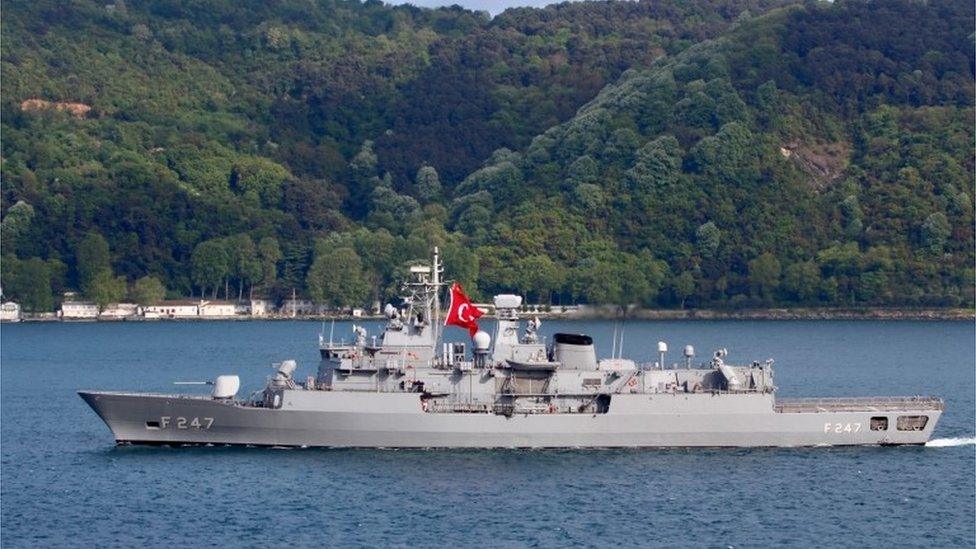Greece-Turkey tensions: Greece announces military boost
- Published
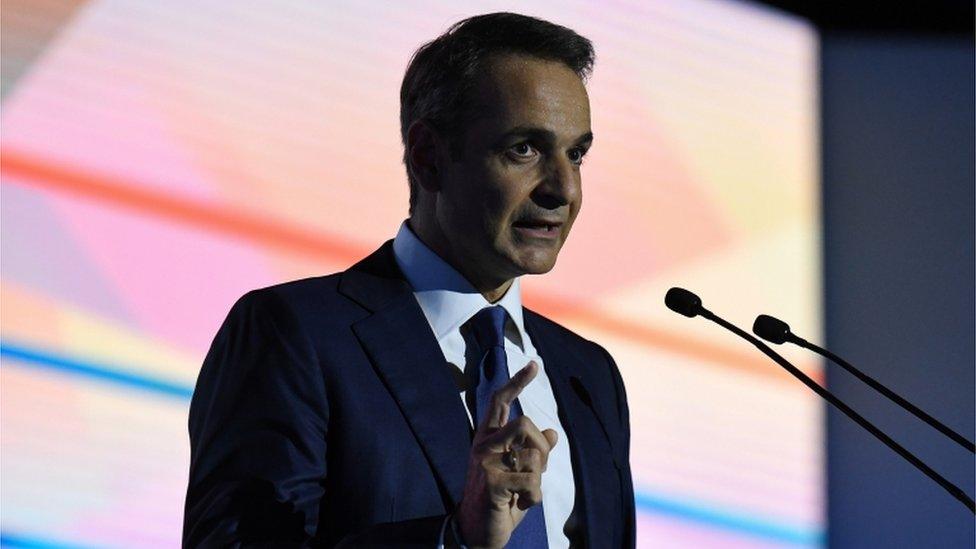
The Greek prime minister announced plans to increase the number of soldiers
Greece has announced a significant weapons purchase as tensions with neighbouring Turkey rise.
The new arms include 18 French Rafale fighter jets, four frigates and four navy helicopters, Prime Minister Kyriakos Mitsotakis said.
The country also plans to increase the size of its armed forces by 15,000 soldiers over the next five years.
Tensions have flared between Greece and Turkey over gas reserves in the Eastern Mediterranean.
Turkey recently sent vessels to conduct seismic research sharpening a dispute with Greece over territory.
The two Nato allies have competing claims over maritime rights, prompting fears that tensions could escalate further.
The European Union, of which Greece is a member, has previously called for dialogue.
"The time has come to reinforce the armed forces... these initiatives constitute a robust programme that will become a national shield," Mr Mitsotakis said on Saturday.
The spending will also include new anti-tank weapons, navy torpedoes and air force missiles.
The new spending is the largest in two decades, AFP news agency reports.
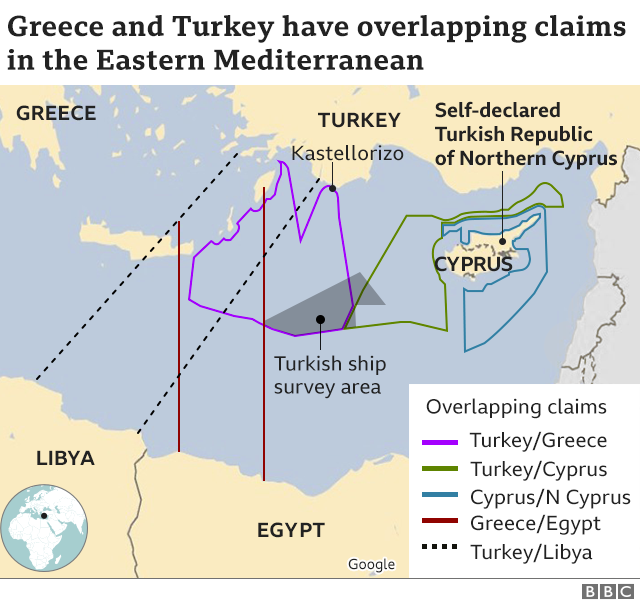
France has backed Greece in the dispute with Turkey, and earlier this week President Emmanuel Macron stressed the importance of being "clear and firm" with Turkey, which he accused of "unacceptable behaviours".
What's the background?
In July, Turkey announced it was sending a research ship to carry out a drilling survey in waters close to the Greek island of Kastellorizo, a short distance from the coast of south-west Turkey.
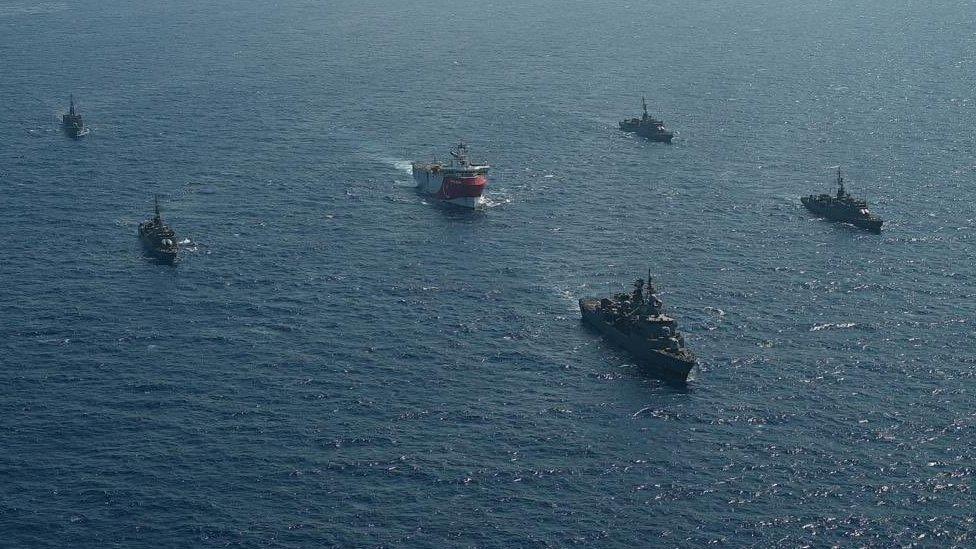
The Oruc Reis is escorted by Turkish navy ships in a photo provided by the defence ministry
In response, Greece carried out naval exercises with a number of EU countries and the United Arab Emirates.
Tensions between the two countries have been strained by several other issues, including the divided island of Cyprus and the crossing of migrants into Greece from Turkey.
Greece also opposed Turkey's recent decision to turn the Hagia Sophia museum in Istanbul back into a mosque. It had been an Orthodox Christian cathedral for centuries, then a mosque and finally a museum.

You may also be interested in:
For more than 40 years Cyprus has been a divided island
- Published25 August 2020
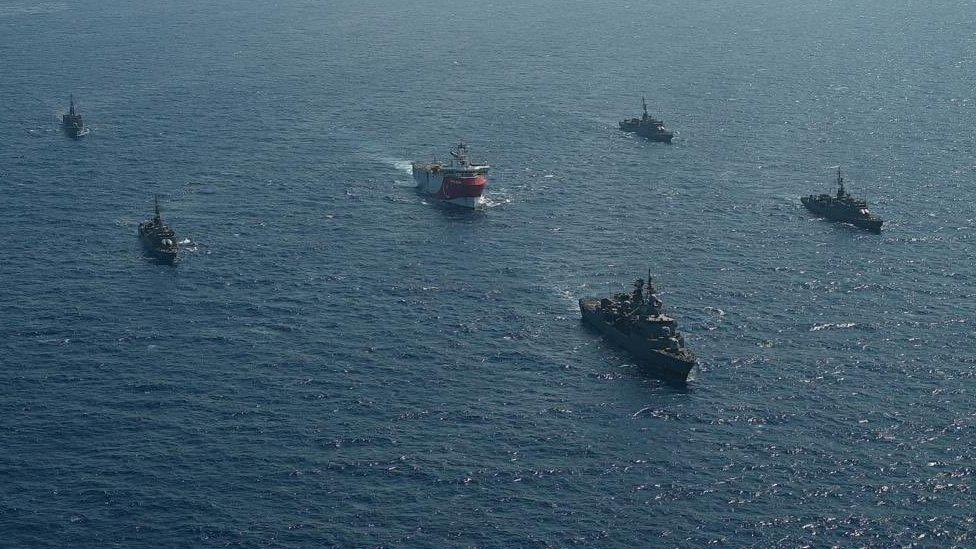
- Published25 August 2020
- Published24 August 2020
